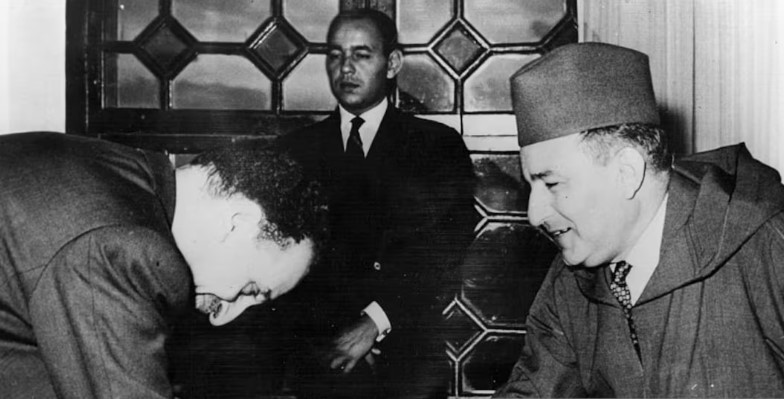As Morocco marks the 69th anniversary of its independence, it is a fitting moment to reflect on the country’s unwavering solidarity with Algeria during its struggle for freedom. Under the enlightened leadership of King Mohammed V, Morocco stood as a steadfast ally, offering not only words of encouragement but tangible support to the Algerian people in their fight against French colonial rule.
From the earliest days of Algeria’s liberation movement, King Mohammed V declared the cause of Algerian independence as inseparable from Morocco’s own values and aspirations. In 1957, during an address to the United Nations General Assembly, and again in 1960, the King made Morocco’s stance clear, urging his people to stand with Algeria in its quest for justice and sovereignty. “The day of Algeria is ours,” he proclaimed. “It is our duty to continue supporting Algeria and to redouble our efforts to hasten its victory.”
A legacy of active solidarity
Morocco’s support went far beyond diplomatic declarations. The Kingdom mobilized human, material, and logistical resources to aid Algeria’s National Liberation Front (FLN) in its armed and political resistance. Moroccan border cities such as Oujda and Berkane became vital hubs for the FLN, providing safe havens for training camps and transit points for weapons, medical supplies, and funds.
Throughout the war, Moroccan authorities facilitated complex supply networks that sustained Algeria’s independence effort. In addition to logistical backing, Morocco opened its doors to thousands of Algerian refugees fleeing the horrors of war, offering shelter and protection. Prominent figures of the Algerian revolution, including Ahmed Ben Bella, found refuge and support in Morocco, which allowed them to continue coordinating their resistance efforts.
Defying colonial pressure
Morocco’s stance in favor of Algeria’s independence was not without its costs. French colonial authorities exerted significant diplomatic and economic pressure on the Kingdom, attempting to weaken its support. Trade restrictions and other punitive measures added to the challenges of a young nation still finding its footing after its own independence. Despite these difficulties, King Mohammed V held firm, asserting that Algeria’s liberation was essential for the stability and unity of the Maghreb region.
Morocco’s solidarity with Algeria reflected a broader vision of regional unity. King Mohammed V believed that Algeria’s independence was a necessary step toward freeing North Africa from colonial domination and building a sovereign, cooperative Maghreb. This ambition transcended bilateral relations, embodying a pan-African ideal of collective liberation and shared prosperity.
Lessons for the future
As Morocco celebrates its independence, this chapter of shared history serves as both a source of pride and a poignant reminder of what could have been. The hope of a united Maghreb, envisioned by the leaders of the independence era, has been overshadowed by decades of division and territorial disputes. Yet the memory of Morocco’s support for Algeria underscores the enduring importance of solidarity, respect, and shared purpose in achieving freedom and dignity.
For younger generations, revisiting this history highlights the strength of brotherhood between neighboring peoples and the missed opportunities for unity. It is a testament to the sacrifices made in pursuit of independence and a call to overcome divisions in the interest of a brighter, more unified Maghreb.
Mohamed Mounadi
